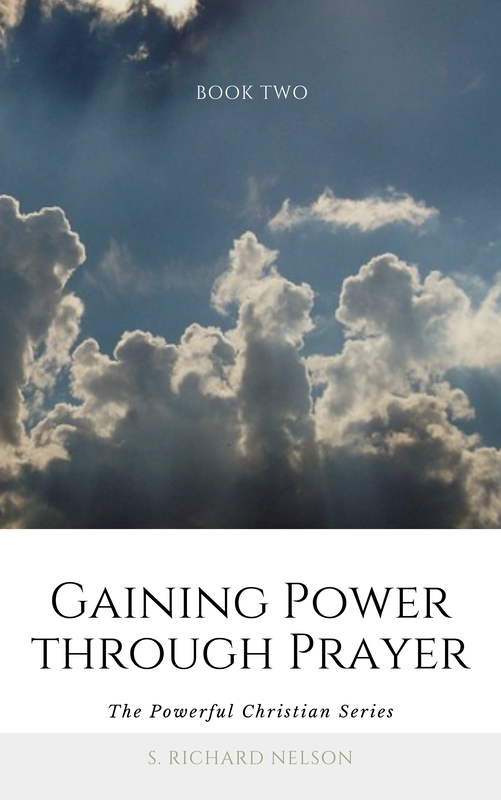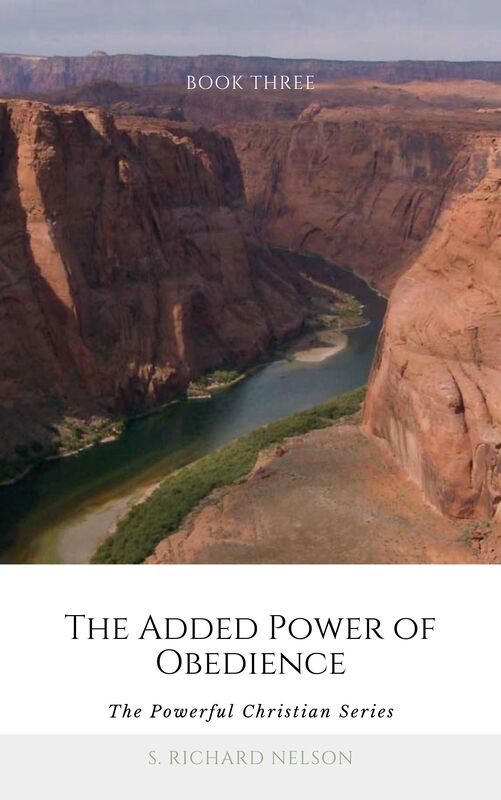|
THE GOOD SHEPHERD OF ANCIENT ISRAEL
The Lord and God of the Old Testament, usually referred to by the Israelites as Jehovah, was labeled by ancient Hebrew poets and prophets as the “Good Shepherd.” No figures of speech, no parables, no metaphors, no similarities brought greater peace and joy to the Israelites’ hearts than the distinguished declaration: Jehovah is our Shepherd. Israel's very lives depended upon the safety and breeding abilities of their sheep. Both their physical and spiritual welfare revolved around Israel’s flocks and herds. The food for their meals, their clothes, and the sacrifices for their altars all came from their flocks. In desolate deserts, on steep mountain slopes, in the sullen and sinister valley of the shadow of death, a strong bond of mutual reliance and love formed between the sheep and the shepherd. Those who cared for the flocks were not sheepherders but shepherds, not hired helpers but pastors; sheep were not driven, but led; they listened and followed the voice they had come to know. At night the flocks were commingled in one safe sheepfold where a single shepherd stood guard against the wolves and terrors of the night. In the morning each shepherd called his own sheep out and they followed him to green pastures and still waters. King David begins the awe-inspiring hymn of worship, Psalm 23, with the alluring line: “The Lord is my shepherd; I shall not want.” Similar expressions of stirring praise and adoration to the “Good Shepherd” are found in some of the other Psalms. The prophets Isaiah, Zachariah, and Ezekiel symbolized Jehovah as the “Great and Good Shepherd.” All who loved and accepted him were regarded as the sheep of his fold.
THE GOOD SHEPHERD OF THE NEW TESTAMENT
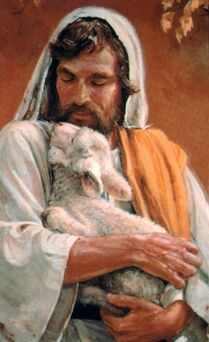
When Christ was teaching the gospel in the Holy Land, he called himself the Good Shepherd, the same title used by ancient Israel to refer to Jehovah in the Old Testament. Jesus pointed out clearly that the shepherd and the sheep will enter into the door, but thieves and robbers attempt to climb into the sheepfold by some other method. He described the tender care given the sheep by the shepherd who owned the flock, saying: “he goes before them, and the sheep follow him, for they know his voice.”
Later Jesus added these words: “I am the good shepherd. The good shepherd lays down his life for the sheep. “He who is a hired hand and not a shepherd, who does not own the sheep, sees the wolf coming and leaves the sheep and flees, and the wolf snatches them and scatters them. “He flees because he is a hired hand and cares nothing for the sheep.” Jesus made other important remarks regarding his position as shepherd after which many of the people who were listening to him became furious. They were familiar with the teachings of the Old Testament prophets who had predicted that Christ, their Messiah, would be the Good Shepherd, and so they said: “How long will you keep us in suspense? If you are the Christ, tell us plainly.” Jesus answered: “I told you, and you do not believe. The works that I do in my Father’s name bear witness about me, “but you do not believe because you are not among my sheep. “My sheep hear my voice, and I know them, and they follow me. “I give them eternal life, and they will never perish, and no one will snatch them out of my hand.” What possible response can his hearers—then or now—make to this divine doctrine? Jesus proclaimed his divine Sonship. From God the Father he inherited the power of immortality, the power to live forever. An immortal being cannot die. No man can take his life from him. From Mary, who is his mother, he inherited the power of mortality, the power to die. Jesus was the only person—the Son of the living God; the Son of the mortal Virgin—this One Man who had power to live or die. He chose to die, having also the power to live again.The response—then as now—can be only one of two things: either we believe, or we don’t. There is no middle ground, no gray area, no room for compromise. Either Jesus is the Atoning One or he is not. As C. S. Lewis eloquently exclaims: “You must make your choice: either this man was, and is, the Son of God, or else a madman or something worse. You can shut him up for a fool, you can spit at him and kill him as a demon; or you can fall at his feet and call him Lord and God. But let us not come with any patronizing nonsense about his being a great human teacher. He has not left that open to us. He did not intend to.” C. S. Lewis (2014). “God in the Dock”, p.289, Wm. B. Eerdmans Publishing The Jewish excuse for rejecting Jesus was: “He has a demon, and is insane; why listen to him?” As C. S. Lewis indicates, unless Jesus’ claims of divinity are true, then of course he is mad, insane, totally devoid of reason or sense. Yet some chose to believe based on Jesus’ words and his works. His words flowed with such divine fluency and conviction that no enlightened person could reject them. His works could only be performed by someone approved of God. “These are not the words of one who is oppressed by a demon. Can a demon open the eyes of the blind?” If someone is approved of God—as Jesus’ works testify—says, 'God is my Father,' how can his testimony be other than true? 
The following description from a Christian minister who spent many years in the Holy Land helps us better appreciate the richness of the Savior's parable of the Good Shepherd:
“The shepherd depends upon the sheep to follow, and they in turn expect him never to leave them. They run after him if he appears to be escaping from them, and are terrified when he is out of sight, or any stranger appears instead of him. He calls to them from time to time to let them know that he is at hand. The sheep listen and continue grazing, but if anyone else tries to produce the same peculiar cries and guttural sounds, they look around with a startled air and begin to scatter. “As he is always with them, and so deeply interested in them, the shepherd comes to know his sheep very intimately.” George M. Mackie, Bible Manners and Customs, 33–34. You can learn more about the Good Shepherd in El Shaddai: Honoring His Holy Name.
0 Comments
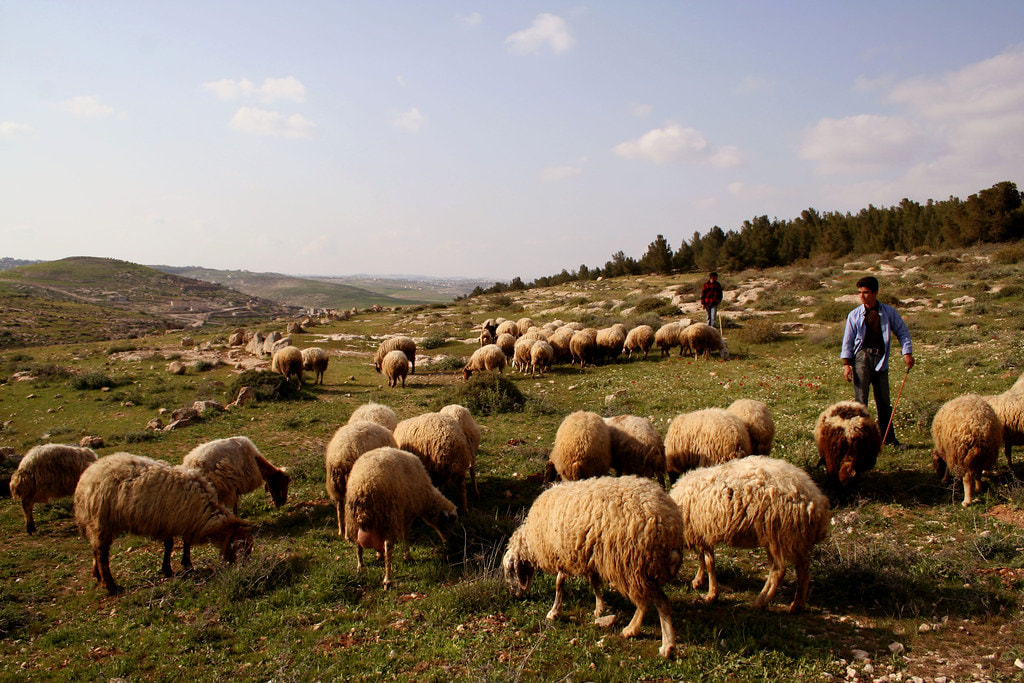
For ancient Israel, the word “shepherd” became a metaphor for kings and was also applied to religious leaders. Israel’s leaders, however, were often reprimanded for their failure to properly watch over the flock of God. God issued a severe warning to false shepherds who had authority to lead but who gave up that responsibility to better serve themselves. They were most likely good people who eventually became greedy and self-serving.
While our Shepherd does so much for us, we, as sheep, have a responsibility to not be lead astray. We must understand that more than one shepherd calls to us. Ezekiel 34 exposes how false shepherds care only for themselves. We should recognize and run from them and seek out the one true Shepherd. “Shepherds of Israel who have been feeding yourselves! Should not shepherds feed the sheep?” The false shepherds feed themselves and not their flock. “You eat the fat, you clothe yourselves with the wool, you slaughter the fat ones, but you do not feed the sheep.” The false shepherds do for themselves, taking the finest things life has to offer. “The weak you have not strengthened, the sick you have not healed, the injured you have not bound up, the strayed you have not brought back, the lost you have not sought, and with force and harshness you have ruled them.” False shepherds do not strengthen the weak. They do not heal the sick or bandage the injured. False shepherds do not bring back the strays or seek after the lost. False shepherds rule with force and harshness. Do we recognize Yahweh Roi as our shepherd? Do we listen to hear His voice calling us or do we seek the enticements of a false shepherd? Can we even distinguish the voice of the one true Shepherd? When we decide to submit our will to God’s, when we pray and listen for His quiet whisperings within our hearts, we will then begin to recognize His voice calling us to safety. Matthew recites a prophecy of Micah regarding Bethlehem: “Out of you will come a ruler who will shepherd my people Israel.” Jesus was born in Bethlehem, of the line of David, the ultimate shepherd-ruler. Rohi, or the Greek equivalent (poiman `o kalos) is a name Jesus used to refer to himself as a claim to deity and to his status as the God of David: “I am the good shepherd. The good shepherd lays down his life for the sheep…”
God is our shepherd. He knows the green pastures and how to steer us along dangerous paths until we reach the pleasant meadows. He knows all our needs. Whether our rough terrain be physical or spiritual, emotional or mental, we can trust the Lord to lead us and guide us. He knows what is ahead.
Listen carefully and follow His voice as the good Shepherd navigates you through the bumpy, uneven landscape of life. 
Do you remember the company that advertised that their margarine tasted so much like butter it could fool Mother Nature? The opening scene reveals a peaceful, natural setting as Mother Nature dipped her finger in and tasted the margarine. When she discovers that what she is tasting is not her own natural butter but a man-made replica she declares: "It's not nice to fool Mother Nature!" and she unleashes her havoc and disaster all across the TV screen.
While this was merely a very effective advertising campaign, the truth is, God often exhibits displeasure through the forces of nature. He uses these elements to call the wayward and wicked to repentance. The people in Noah’s time learned this lesson too late as did the sinful cities of Sodom and Gomorrah. In our own time, among the predicted commotions of nature is the upheaval and shaking of the earth. God chastises and calls people to repentance by the voice and testimony of earthquakes. As Jesus taught his disciples on the Mount of Olives about the pending doom of Jerusalem and the future calamities preceding his second coming, he declared: "And there will be famines and earthquakes in various places." (Matthew 24:7; Mark 13:8; Luke 21:11.) Isaiah warns us that judgment will come with earthquakes. (Isaiah 29:6.) More than 700 earthquake tremors of magnitude 2.5 or higher have been recorded just in the State of Colorado since 1867. That is 700 earthquakes over a period of more than 150 years. During this same period, California experienced more than 20,500 similar-sized quakes. Statistics from the U.S. Geological Survey indicate that earthquakes around the world are increasing in frequency and intensity. If the chart that follows is any indication, it would certainly seem that the voice of God is speaking through the elements calling people everywhere throughout the earth to repent. The impact of natural disasters such as earthquakes generally affects an entire population of an area. We must be careful about judging the victims of such disasters. While it is true that the wicked are often pinpointed for such destruction, as in the case of Sodom and Gomorrah, it is also true that the righteous will often suffer along with the wicked. Adversity is often the refining fire that strengthens faith. “I am reasonably certain that we will all experience hardship and misfortune over the course of our lifetimes. It seems none of us is immune. Some difficulties may be brutal, cruel and potentially destructive. They could even make us question our faith in God. Spiritual preparation is a time of crisis is by far the most important and critical aspect of our personal sustainability. Regrettably in many cases our spiritual sustainability is the most neglected aspect of our personal preparation.” Quoted from Sustainable Spirituality. Mankind can survive all forms of natural disaster: houses can be rebuilt, bones can be mended, supplies can be replenished. And even where death has occurred, there is the hope and reality of resurrection and life beyond the grave. But losing our faith and turning from the ways of the Prince of Peace to the wickedness of the master of misery is a disaster of eternal consequences. Of all the disasters taking place during the last days, the disaster of disobedience is ultimately the deadliest. The earth is in motion. Today's news is filled with accounts of large-scale famine, civil unrest, and natural disasters. Even more devastating in the long run is the spiritual destruction of disobedience to God's law that is engulfing the world. This horrific quake is shaking the moral fiber out of the nations of the earth and leaving the land in moral desolation. Many people seem to be oblivious to this destruction and have become so desensitized they don't even feel a tremor. The forces of nature cannot be controlled, however, the plagues and moral pollutions that imperil the spirituality of people can be controlled if people simply followed a moral life and sought to do the will of God rather than to pursue their own carnal and selfish ways. Read more about what you can do to increase your Sustainable Spirituality. 
I have met several people who were disillusioned with Christianity and religion in general because they thought that having faith meant they would always get what they wanted. Jesus taught us very specifically that “if you have faith the size of a mustard seed, you will say to this mountain, ‘Move from here to there,’ and it will move; nothing will be impossible for you.” (Matt. 17:20) While faith can make it so that nothing is impossible for us, it does not always mean getting what we want or even what we need. Sometimes faith means accepting the will of the Lord because it is always better than our own will and desire.
Sometimes the trials we face, the mountains we struggle to climb, are not removed. Perhaps God has a purpose for us in climbing those mountains or in traveling along a difficult and rocky road in life. The faith required to climb our mountains is actually greater than the faith needed to remove them. I have climbed many mountains in my life time. Faith did not always allow me to remove those mountains from life’s journey. Instead, God gave me the courage and the strength to struggle, toil and climb them. Because of this, my faith has grown stronger. In the book, Sustainable Spirituality: Maintaining Faith in the Face of Adversity, we read that “The strength of our souls, not the circumstances of our lives, chases away the fear in our hearts and ensures the establishment of peace within. With a perfect love that drives out fear, Jesus consistently and persistently declares the way of peace in the midst of suffering and turmoil, present or future, expected or unexpected.” As Jesus walked across the turbulent waves of the Sea of Galilee, he approached his disciples who were out in the boat and called to them, “Have courage! It is I. Do not be afraid.” (Matt. 14:27) The apostle Peter desired to leave the boat and meet Jesus out on the troubled waters and Jesus told him to come. As Peter took his eyes off the Savior and looked down at the tempestuous waves swirling beneath his feet and felt the boisterous winds blowing against his face, he became afraid and began to sink. Looking back at Jesus, Peter cried, “Lord, save me!” Immediately Jesus reached out his hand and caught him, saying to him, “You of little faith, why did you doubt?” (Matt. 14:30, 31) Peter was just an ordinary man, yet the Lord enabled him to do an extraordinary thing; to walk on water. Peter started to sink because of the storm that surrounded him. How many of Christ’s followers lose their faith when faced with the storms of adversity? When Peter stood on top a stormy sea and his heart began to fill with fear, Jesus did not stop the storm. He did not calm the waves or silence the winds. Instead, he reached out his hand and pulled Peter up and he will do the same for us during the storms we face in life. He may not always calm the wind or the waves beneath our feet, but he will give us the strength to endure. As he did with Peter, he will reach out his arm and lift us up. It is of particular intertest that once Peter and Jesus entered into the boat, then and only then, did the winds cease. (Matt. 14:31) If, when Jesus reaches his hand out to us, we allow him into our hearts and lives, we will find peace, strength and comfort. Again, in Sustainable Spirituality, we read: “As our faith becomes more resilient, we can respond more maturely to trials and temptations, the tragic events that will certainly surface in our lives…. When we are born of the Spirit and honestly seek Christ, we will become resilient in surmounting life’s problems and perplexities. When we renounce the world and its enticements, we generate wisdom, judgment and confidence. Finding our sustainability in spirituality, we can then lift, enlighten and liberate others.” Difficulties and trying circumstances are placed in our path for reason. Often the mountains in our path are there to strengthen us and fortify our faith as we confront them and climb them with the Lord by our side. Nothing Jesus does and nothing he allows to happen to us will ever harm us permanently. Difficulties and hardships can strengthen our will, refine our faith, and make us greater disciples of Christ. When you face those challenging mountains, don’t wish for them to be gone. Pray instead for the courage, the strength and the faith to surmount them. Some mountains may never be removed but with faith in the Lord, enabled by the strength he provides, you will climb even the rockiest ridges. “On the shore of peace and tranquility, Jesus Christ is the only dependable beacon on which we can firmly rely. When we feel the floods threatening to drown us and the waves eager to devour the tiny tossed vessel of our faith, during the darkest hours of our storm the comforting words of Christ resonate within our hearts: ‘Have courage! It is I. Do not be afraid.’” Spiritual Sustainability: Maintaining Faith in the Face of Adversity 
Every one of us face the persistent possibility of a failure of our faith. I know that I must pray continually, exercise faith constantly, practice my Christian convictions ceaselessly to remain unfaltering in the faith. Even the great Apostle Peter was not immune from faltering faith. Jesus prayed for Peter “that your faith may not fail.” “The spirit is willing,” observed Jesus, “but the flesh is weak.”
Faltering faith is the result of an inner conflict between body and spirit. As Paul taught, “For the flesh has desires that are opposed to the Spirit, and the Spirit has desires that are opposed to the flesh, for these are in opposition to each other, so that you cannot do what you want.” Homeostasis, that state of being in balance, usually refers to the physical body. Our physical bodies have procedures, such as breathing and heart rate, to preserve itself within carefully circumscribed parameters. (If we get too hot, we perspire. If we get too cold, we shiver. These physical processes act to uphold a typical body temperature of around 98.6.) We should also have a spiritual balance, a homeostasis that will keep our spiritual selves within circumscribed Christian parameters. Daily prayer, Bible study, church attendance and acts of kindness will nourish our souls in a spiritual homeostasis. Repentance can also restore our spirit to a state of balance and equilibrium. "One indication of spiritual sustainability," as explained in Sustainable Spirituality: Maintaining Faith in the Face of Adversity, "is our responsive resolve to live a Christian lifestyle. As our faith becomes more resilient, we can respond more maturely to trials, temptations and tragic events that will certainly surface in our lives." Jesus warned us to “not be afraid of those who kill the body but cannot kill the soul. Instead, fear the one who is able to destroy both soul and body in hell.” Once they have done whatever they will to the body, there is “nothing more they can do.” The Apostle Paul encouraged us to “say with confidence, ‘The Lord is my helper, and I will not be afraid. What can man do to me?’” We cannot and should not trust in physical strength alone. Physical strength, even on steroids, can falter in its grip on faith. Peter explained that “whatever a person succumbs to, to that he is enslaved.” We become physically enslaved by the physical desires that incorrectly and sufficiently obsess us, including the subtle forms of sin. We are enslaved by our desires for status and worldly recognition, by craving worldly riches instead of treasures in heaven and by the allure of sensualism. Faltering faith mirrors basic human deficiencies like ancient Israel’s: “They are a perverse generation, children who show no loyalty.” The physical self is never free but Christ continually displays for us the way to freedom from slavery to sin and self. When we yield ourselves to God and submit to His great Will, we break the bonds of slavery. Those who do not falter in their faith during days of darkness and despair will garner more of the substance of things hoped for and the evidence of things not seen. When we welcome and acknowledge God’s promises in complete faith, as Paul describes, then we are entitled to the full harvest of faith. Our constant confidence should be in Christ. Faith falters when we succumb to peer pressure or to the shame and scorn heaped on us by the doubters of the world. Doubters do not generally desire to believe. They want the full harvest without working the farm. By not being active in the process of faith, they do not receive the reinforcing rewards of the faithful. C. S. Lewis made the point that those without faith are entitled to dispute with those who have faith about the grounds of their “original assent,” but doubters should not be surprised if “after the assent has been given, our adherence to it is no longer proportioned to every fluctuation of the apparent evidence.” "Sustainable Spirituality" reminds us that the call of Christ to remain resilient to the end is fundamental to our faith. God doesn't just want starters; He wants finishers. He wants disciples who compute the cost and are willing to stay in the battle until its conclusion. As followers of Christ we must shed our bunker mentality and move throughout the world wearing the whole armor of God and carrying the sturdy shield of faith to quench the fiery darts of the adversary. As disciples, we seek to share the contagion of our faith. We will have hearts full of love when the “love of many will grow cold.” When peace has been taken from the earth, we will have the peace of Christ in our homes and in our souls. In a churning world of turmoil and fear where everything will be in commotion, we will be spiritually intact. The final days of the earth will bring a compression and commotion of events. Discouragement and discontent will seek to destroy our faith. Our eventual home in the hereafter depends on whether our knees bend before Christ or shake before the world. Learn more about unfaltering faith in the book, "Spiritual Sustainability: Maintaining Faith in the Face of Adversity." 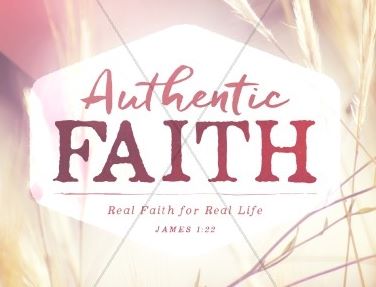
There are millions of people worldwide who have never developed faith in God, faith in Jesus Christ or faith in a life hereafter. Because their faith is undeveloped, they believe that all faith is nothing more than blind belief. But Paul explains that true faith is anything but blind. In fact, Paul teaches us that "faith is... evidence of things not seen." A friend recently explained the difference between true faith and blind faith this way: Let's say you want an IPad. You go to bed at night and tell yourself, "I really want a new IPad. I hope I find one on my nightstand when I wake up in the morning." You want this new IPad more than you've ever wanted anything and you even deserve to have it. You hope with all your heart that when you wake up your new IPad will be waiting for you on the nightstand. To an atheist, this is what having faith means. But to a believing Christian, faith is much more than just a blind hope that God exists or that Jesus Christ is the savior who died for our sins. True faith is much more than a blind hope. True faith looks more like this: You want a new IPad so you research the internet and find the one that's right for you. You fill out the online order form, complete with credit card information, and you receive a confirmation number for your order. You still don't have an IPad but you have some evidence (a confirmation number) that your IPad is coming in 7 to 10 days. The following morning you check your bank balance and you see the money for your IPad has been withdrawn from your account. You still don't have your IPad but you have further evidence that your order has been processed and your new device is coming. Next you get an email from the company saying that your IPad has shipped. You still don't have your IPad but you have even further evidence that you soon will. Perhaps you get an email from UPS or Fedex saying they will be delivering your IPad and they give you a tracking number. More evidence. But you still don't have your IPad. The day your IPad arrives you get an email sent to your work from the carrier saying that your IPad has been delivered to your home. It's finally there! Of course, you don't see it because you're still at work but you have faith backed by evidence that your IPad has been delivered. Your spouse might even telephone you at work and tell you that your IPad has arrived and it's waiting for you when you get home. You still don't actually have your IPad. You haven't even seen it but you have plenty of evidence of something you hoped for and you can be certain that when you arrive home you will receive your reward. This is the true interpretation of faith. It is not just a blind wish that hopefully there is a God out there somewhere. It is "the substance of things hoped for, evidence of things not seen." (Hebrews 11:1) As believing Christians there is substantial power available to us. It is the power of faith. The power available to us through Jesus Christ is very real. We are not alone on this earth, and the purpose God has for us is to ultimately return to Him. Learn more about the power available to you, the power of faith, in Rich Nelson's book, Turning Faith into Power. |
Rich Nelson
|
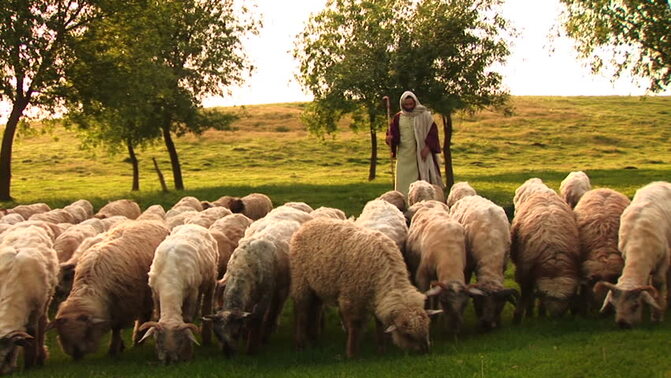
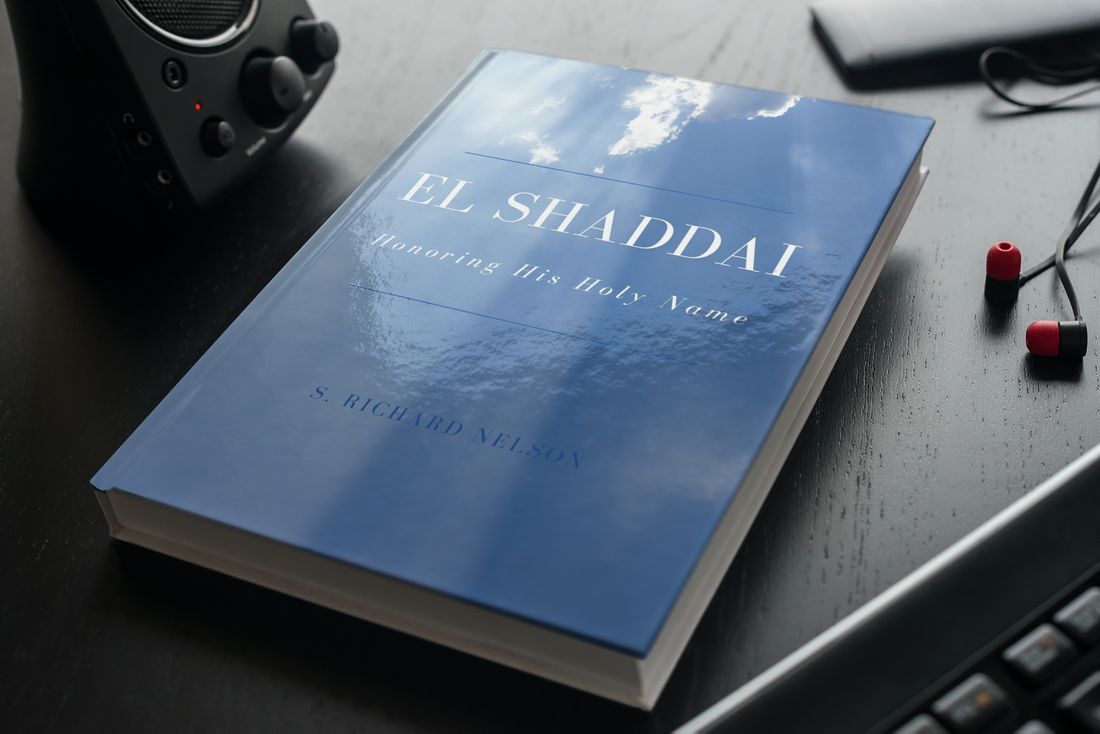
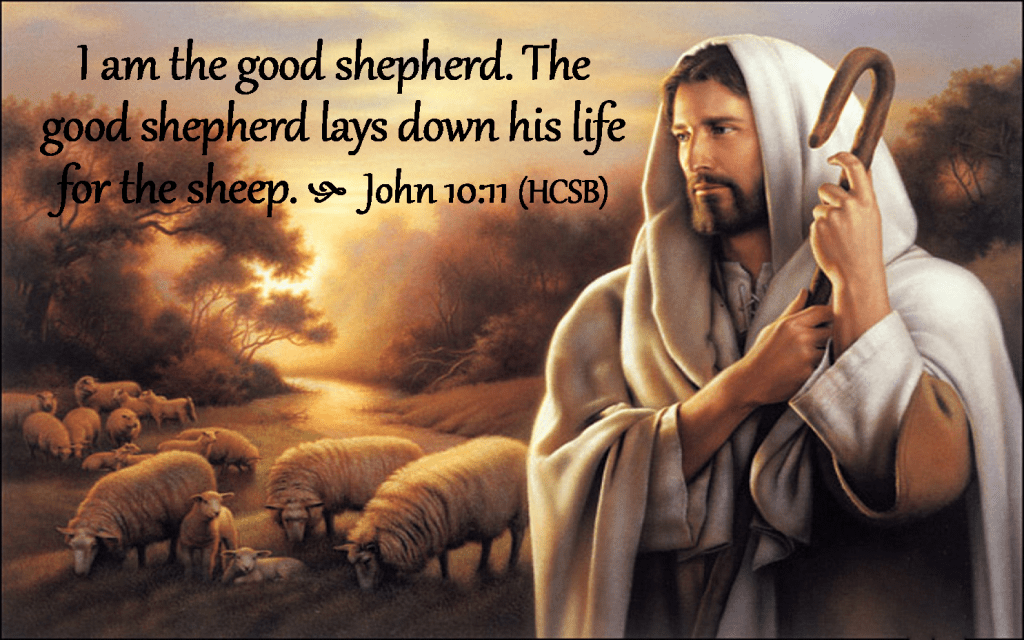
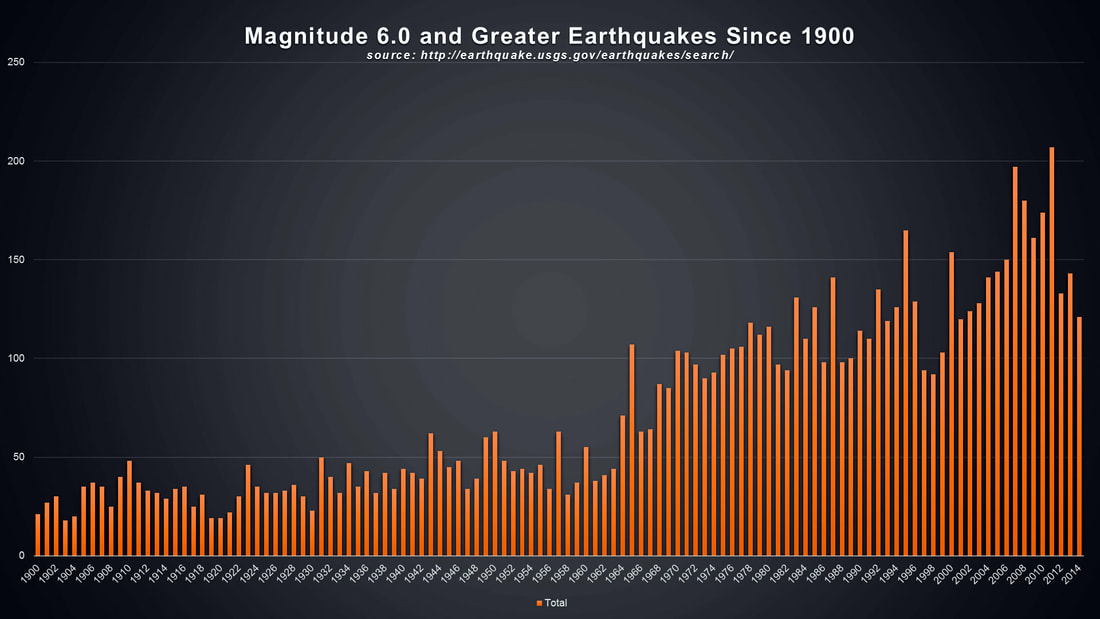
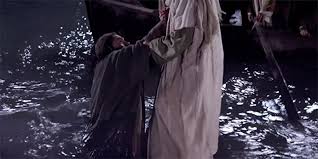
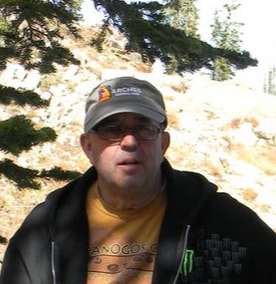

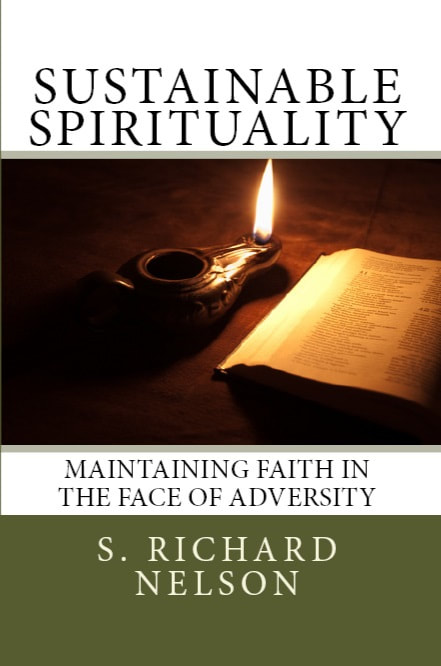
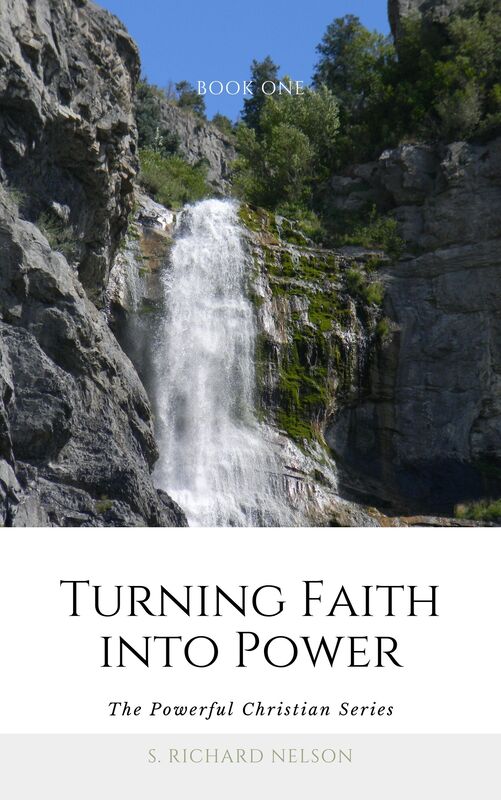
 RSS Feed
RSS Feed
